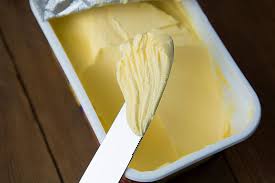Margarine is a versatile fat used in various culinary applications, including baking, cooking, and spreading. With the increasing demand for bakery and confectionery products in Nigeria, the market for margarine presents a lucrative opportunity for investors. This executive summary outlines the market analysis and feasibility study for margarine production in Nigeria
Market:
Growing Demand: The Nigerian margarine market is expected to experience significant growth due to rising disposable incomes, urbanization, and increasing health consciousness among consumers. Consumers are shifting towards healthier alternatives like margarine compared to traditional butter.
Favorable Demographics: Nigeria's young and growing population presents a strong market base for packaged food products like margarine.
Limited Domestic Production: Currently, domestic production of margarine is limited, creating an opportunity for new entrants.
Feasibility:
Favorable Raw Materials: Nigeria has a readily available supply of raw materials like palm oil, a key ingredient in margarine production.
Existing Infrastructure: Existing manufacturing and distribution infrastructure can be leveraged to reduce initial investment costs.
Competition: The market is dominated by a few major international players. However, there's space for local brands to capture market share by offering competitive pricing, innovative product formulations, and effective marketing strategies.
The study finds that based on the growing market demand, import substitution potential, and positive financial projections, a new large-scale margarine plant in Nigeria is a commercially viable opportunity. However, raw material procurement, production efficiency, quality control and effective marketing are critical for successful execution
Market:
Growing Demand: The Nigerian margarine market is expected to experience significant growth due to rising disposable incomes, urbanization, and increasing health consciousness among consumers. Consumers are shifting towards healthier alternatives like margarine compared to traditional butter.
Favorable Demographics: Nigeria's young and growing population presents a strong market base for packaged food products like margarine.
Limited Domestic Production: Currently, domestic production of margarine is limited, creating an opportunity for new entrants.
Feasibility:
Favorable Raw Materials: Nigeria has a readily available supply of raw materials like palm oil, a key ingredient in margarine production.
Existing Infrastructure: Existing manufacturing and distribution infrastructure can be leveraged to reduce initial investment costs.
Competition: The market is dominated by a few major international players. However, there's space for local brands to capture market share by offering competitive pricing, innovative product formulations, and effective marketing strategies.
The study finds that based on the growing market demand, import substitution potential, and positive financial projections, a new large-scale margarine plant in Nigeria is a commercially viable opportunity. However, raw material procurement, production efficiency, quality control and effective marketing are critical for successful execution
Executive Summary
Introduction
2.1 Background and Rationale
2.2 Objectives of the Study
2.3 Scope and Methodology
Margarine Industry Overview
3.1 Definition and Uses
3.2 Global Margarine Market Trends
3.3 Nigerian Margarine Industry
Market Analysis
4.1 Margarine Demand in Nigeria
4.1.1 Household Consumption
4.1.2 Industrial and Commercial Usage
4.2 Supply Situation
4.2.1 Domestic Production
4.2.2 Imports
4.3 Pricing and Market Segments
4.4 Distribution Channels
4.5 Key Players and Competition
4.6 SWOT Analysis
Proposed Project Details
5.1 Production Process and Technology
5.2 Plant Location and Site
5.3 Capacity and Machinery Requirements
5.4 Raw Material Sourcing
5.4.1 Palm Oil
5.4.2 Other Vegetable Oils
5.4.3 Other Ingredients
5.5 Product Range and Packaging
5.6 Quality Control and Certification
5.7 Target Markets and Marketing Strategy
Technical Analysis
6.1 Infrastructure and Utilities
6.2 Environmental Considerations
6.3 Project Implementation and Schedule
Organizational and Operational Plan
7.1 Management and Human Resources
7.2 Operational Processes
7.3 Supply Chain and Distribution
Financial Analysis
8.1 Capital Investment
8.2 Operating Costs
8.3 Revenue Projections
8.4 Profitability Analysis
8.5 Investment Appraisal
8.6 Sensitivity Analysis
Risk Analysis and Mitigation
Key Success Factors and Recommendations
Conclusion
Appendices
Appendix A: Supporting Data and Calculations
Appendix B: Relevant Policies and Regulations
Introduction
2.1 Background and Rationale
2.2 Objectives of the Study
2.3 Scope and Methodology
Margarine Industry Overview
3.1 Definition and Uses
3.2 Global Margarine Market Trends
3.3 Nigerian Margarine Industry
Market Analysis
4.1 Margarine Demand in Nigeria
4.1.1 Household Consumption
4.1.2 Industrial and Commercial Usage
4.2 Supply Situation
4.2.1 Domestic Production
4.2.2 Imports
4.3 Pricing and Market Segments
4.4 Distribution Channels
4.5 Key Players and Competition
4.6 SWOT Analysis
Proposed Project Details
5.1 Production Process and Technology
5.2 Plant Location and Site
5.3 Capacity and Machinery Requirements
5.4 Raw Material Sourcing
5.4.1 Palm Oil
5.4.2 Other Vegetable Oils
5.4.3 Other Ingredients
5.5 Product Range and Packaging
5.6 Quality Control and Certification
5.7 Target Markets and Marketing Strategy
Technical Analysis
6.1 Infrastructure and Utilities
6.2 Environmental Considerations
6.3 Project Implementation and Schedule
Organizational and Operational Plan
7.1 Management and Human Resources
7.2 Operational Processes
7.3 Supply Chain and Distribution
Financial Analysis
8.1 Capital Investment
8.2 Operating Costs
8.3 Revenue Projections
8.4 Profitability Analysis
8.5 Investment Appraisal
8.6 Sensitivity Analysis
Risk Analysis and Mitigation
Key Success Factors and Recommendations
Conclusion
Appendices
Appendix A: Supporting Data and Calculations
Appendix B: Relevant Policies and Regulations
$250 (N300,000)
Get your Indicative loan offer: admin@fundxperts.com
Contact: admin@fundxperts.com

